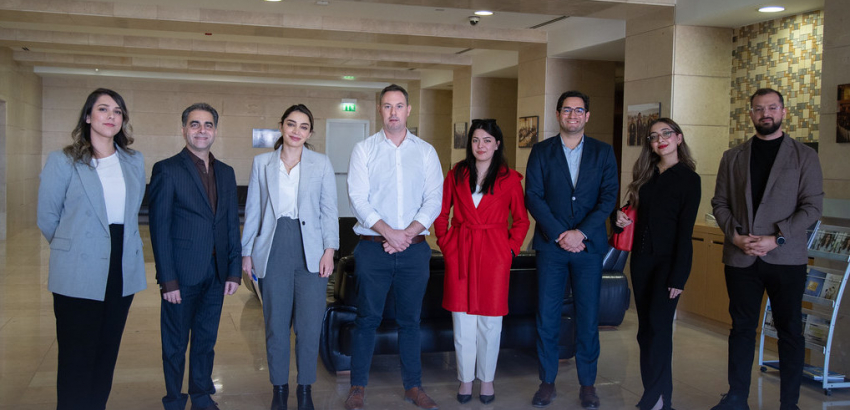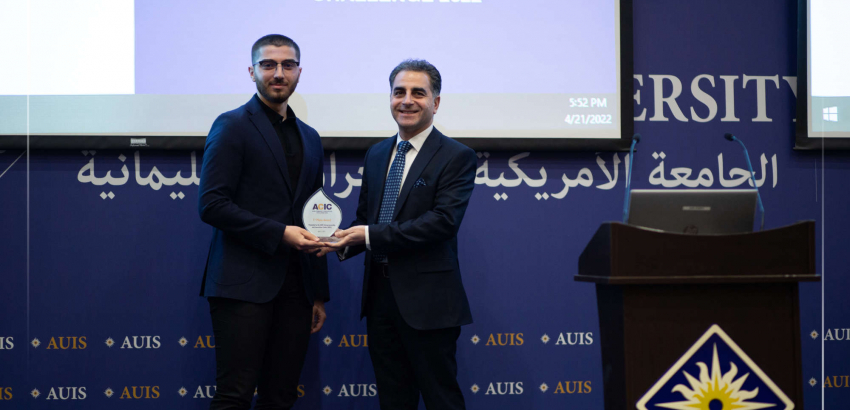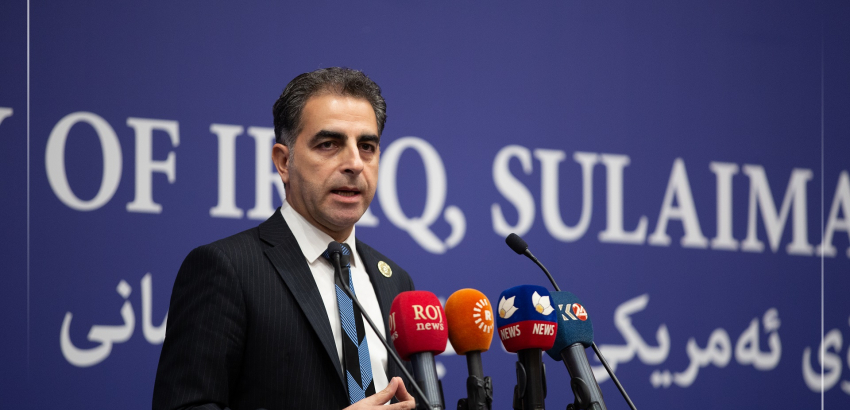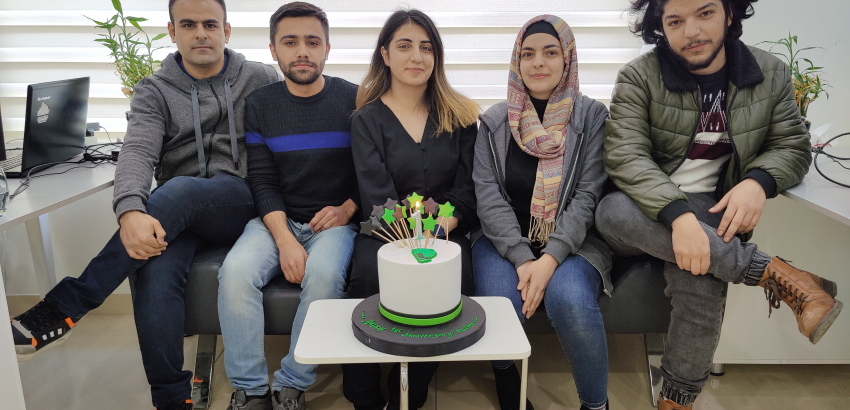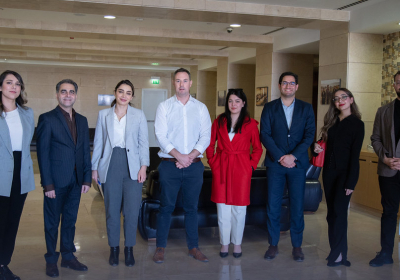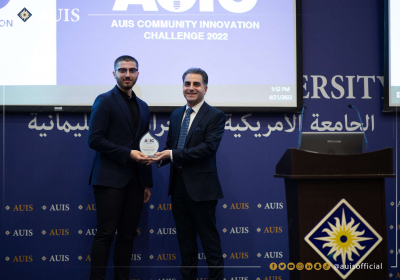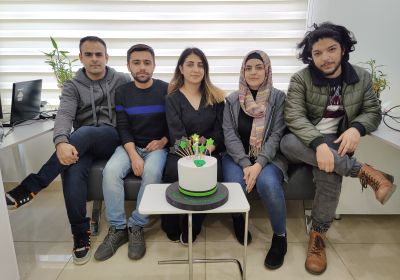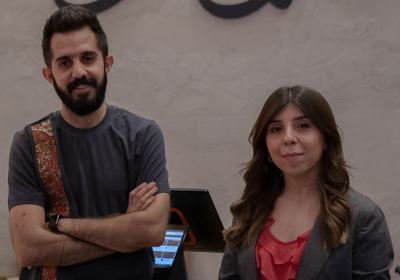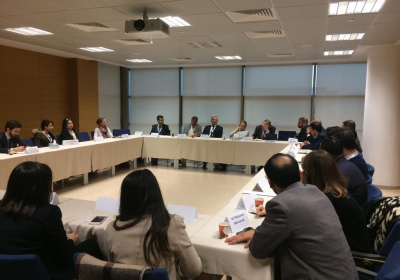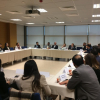Hero Mohammed (Information Technology,‘17) is the founder of Potan, a B2B company focused on IT solutions and software development founded in 2020 and based in Sulaimani. With a team of five young professionals as well as clients in Kurdistan, federal Iraq, and internationally, she aims to grow Potan, which builds meaningful and scalable software solutions for companies around the world. Hero is also the founder of Hackasuly, a coding community started in 2017 with the goal of promoting technology and encouraging people to join the tech sector. Their first hackathon event was held in 2017 at AUIS with over 60 participants from different technology backgrounds.
Hero spoke to the AUIS Entrepreneurship and Innovation Center (AEIC) about her journey.
AEIC: Please introduce your business and the story behind it.
Hero Mohammed: Potan is a software solution company. I was working in the tech industry before starting the company so I always looked at the market and how software was developed here. I saw a gap as we got closer to digital transformation. We need more IT skills and we need more companies in the private sector to be involved in the whole transformation. So I thought it would be a good opportunity for me to start Potan and try to be part of this transformation, not only in Kurdistan but across all of Iraq.
AEIC: What inspired you to start your business?
HM: When I was working in the tech industry, I saw very traditional, mostly old technology that we have adapted/picked up a decade ago, so I thought it was my turn to come in and try to modernize technology here as well.
At Potan, we have our own values and vision that we want to implement and that was a big part why I started the company.
Starting your own business or working for someone else affects a person’s perspective. You have to experience different industries, companies, organizations, and institutions in both the private and public sectors just to get the whole idea and the whole image of the industry.
AEIC: What makes Potan different?
HM: What makes Potan different from other companies is that Potan is not only about doing business, but more about setting values and a vision.
Every company has a different culture and work environment. Unfortunately we don’t have a good working environment here. I have personally experienced working environments that were toxic and did not help employees grow, so I always had this idea to start this for myself; that I could start a company where the people working there actually feel comfortable and the company is helping them grow.
It’s not just about paying salaries or just working; it’s definitely a whole culture.
AEIC: How did you come up with the name Potan?
HM: I was searching for a name in Kurdish that I could relate to from both a business and personal perspective, since from a young age I was interested in mathematics and computer science. After searching for months in Kurdish dictionaries and online, we came up with the name Potan. Potan, or in Kurdish پۆوتان, is used in mathematics to describe the coordinate system (x, y). Mathematics is a fundamental intellectual tool in computing, but computing is also increasingly used as a key component in mathematical problem-solving. At the same time, coordinate geometry is essentially the visualization of everything you do with symbols in algebra and calculus. As someone who has always been in love with mathematics and computer science, I find this connection very beautiful. In addition, I find پۆوتان very euphonious and beautiful in terms of the phonetics of the word in Kurdish.
AEIC: What are some challenges you have faced?
HM: The challenges have been very diverse from the first step till you get settled with your business; and it’s only natural to face these challenges,
Registering your business is a hectic and costly process that requires you to come and go to public offices for months .
To start your own business as a founder you have to do everything and the challenges you face are different depending on your background and skill set. Aside from the technical knowledge I have in IT, I had to improve in other fields like sales, marketing, and finance to make sure everything stays on track. You have to work hard and make sure you stay on track.
Technology is a tricky thing; you have to really love it to continue working in it because it’s not necessarily difficult but it requires that you keep learning and making sure you are a good problem solver and that you aren’t reckless.
AEIC: Did you start this business journey alone?
HM: Yes, but everyone from my family, friends, university connections, and professional contacts were very supportive of me in starting this business. The people around you and their encouragement make you move forward.
AEIC: How do you make sure your business runs well?
HM: There are many things you have to run in parallel. Having a good team is very important, training your team and making sure they are progressing and learning new technologies. Also making sure you are generating enough revenue to continue and making sure you have good marketing and sales so you don’t burn out.
AEIC: How did your AUIS education help you succeed?
HM: Many centers of education or academic institutions don’t really prepare their graduates for the local job market. That's why they get shocked and want to give up when they start working.
AUIS as a university has had a great impact on who I am today, especially business-wise. When I started Potan I didn’t only need technical skills but soft skills as well, in addition to learning about business, politics, economics, and so on. What AUIS offered me was not only an IT degree, but knowledge about other fields as well and that gave me a very unique insight for understanding my situation.
The fact that you can take elective classes and subjects that you are interested in can help develop your perspective and your future through solving different kinds of problems you face.
So I would say the whole combination of educational options you have at AUIS form the person you will become after graduation.
AEIC: What advice do you give to other business owners and startups?
HM: Try to see how you can contribute and where you can have impact. Speaking from my own personal experience I think it is always a good idea to make sure everything you do is very well calculated and that you know what obstacles and opportunities may come your way and how to deal with them.
AEIC: What are your regrets or lessons learned?
HM: The whole process is gradual and helps you to learn new things every day. As you learn from your mistakes, the process is very slow but you have to stay passionate and on track.
AEIC: What is the most difficult part of your business as a founder?
HM: Multitasking as a founder is difficult; combining many skills together can be challenging but not impossible.


